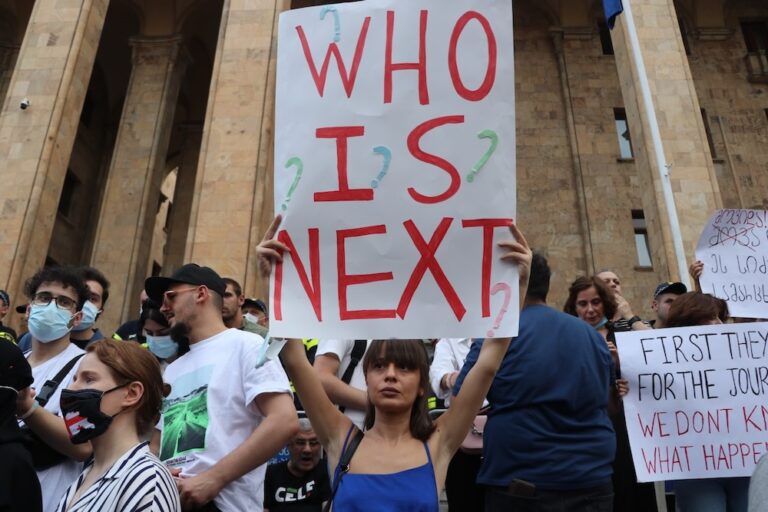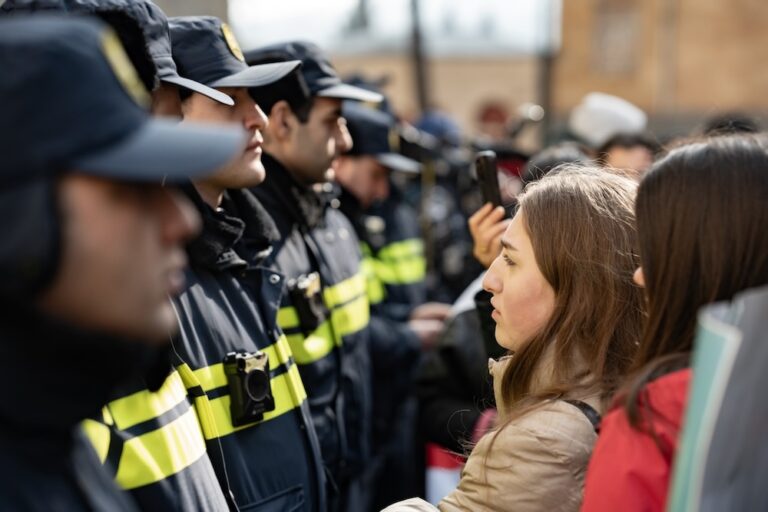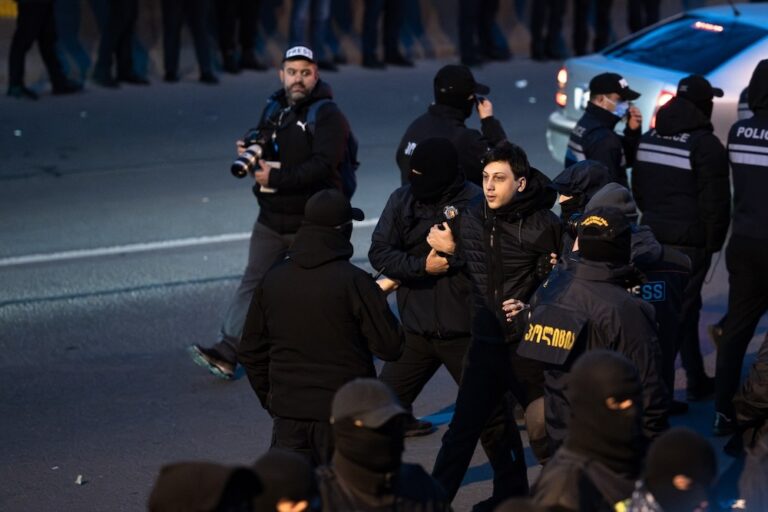The International Federation of Journalists (IFJ) has expressed its grave concern that broadcasting licenses and advertising contracts in Georgia are being unfairly awarded to organisations with close connections to government officials and members of political parties.
The International Federation of Journalists (IFJ) has expressed its grave concern that broadcasting licenses and advertising contracts in Georgia are being unfairly awarded to organisations with close connections to government officials and members of political parties.
According to IFJ’s Georgian affiliate, the Independent Association of Georgian Journalists (IAGJ), Georgia’s state-run body, the National Communication Commission, which is responsible for awarding broadcasting licenses, earlier this year awarded the private broadcasting license for capital city, Tbilisi, to an organisation called Energy Group which is part owned by Georgian politician Kakha Baindurashvili. He is also president of the public body, the Chamber of Commerce and Industry.
“For a public body to award media contracts to organisations linked to government representatives is a blatant conflict of interest and a clear violation of the Georgia’s law on broadcasting. It also damages the independent media market in Georgia and undermines press freedom,” said IFJ President Jim Boumelha.
“We call on the government of Georgia to ensure that the Communication Commission acts according to the law and does not grant licenses to groups affiliated with government officials.”
Independent Georgian media organisation, Radio Hereti, which was involved in the bidding contest for the contract that was awarded to Energy Group, appealed to the National Communication Commission to reconsider the decision because according to the Georgian Law on broadcasting, “[the] owner of the license/authorized person or its beneficiary can’t be an official of an administrative body.”
In a letter sent to the commission in November, Radio Hereti asked for the decision to be cancelled, while in a letter sent in December they called on the commission to make a “fair decision” so the matter does not proceed to court.
The IAGJ has also stressed the importance of ensuring that advertisements by Georgian public bodies are distributed fairly to media organisations, while further stating that subsidised media channels are harming the development of independent media.
“If independent media is to be able to compete in a balanced and open market, then it is extremely important that all advertisements are distributed fairly to all media companies, not just those in which politicians or public figures are involved,” said IFJ General Secretary Beth Costa. “Monopolisation of the advertisement market is unfair and unethical.”
“Based on the seemingly blatant disregard of the Communications Commission for open and fair competition, we call for the IAGJ to be included on this body so they can ensure a more balanced and independent decision making process. We also ask local businesses to cease support for government affiliated channels and give their support to Georgia’s independent media.”


